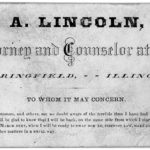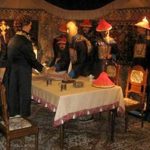Antonio Cánovas del Castillo was born in Spain in 1828. He was Prime Minister (Presidente del Gobierno) thrice, in the periods 1875-81, I884-85 and 1895-7. It was a difficult and dangerous time to be in politics in Spain; revolutionaries & violent dissidents had sprung up everywhere,; there were uprisings; the highways were infested by murderous robbers; the famous Guardia Civil in their tricorne hats were having a hard time.
Cánovas stayed apart from the Revolution of 1868 and the First Republic of 1883/4, but he maintained and strengthened his political position within the grasp of monarchists, so much so that after the Martínez Campo rising of December 1874 against the Republic, he was able to exercise almost dicatatorial power for more than six years.
If he had any outstanding achievements, one was the creation of the Restoration System. This survived until the Dictatorship of Primo de Rivera in 1923.
He was well known for his enormous appetite and apposite roundness. He kept a very good table, but was not popular with colleagues, who called him ‘The Monster’. His looks would not have won him anything but the booby prize in a beauty contest, but he was an extremely hard and assiduous worker, using his eminently intellectual prowess. He was the best orator of his day.
From 1886 he alternated in the seat of power with the Liberal Party under Sagasta, but by the 1890s the regime was falling foul of difficulties abroad and at home. When he came back into supreme power in 1895 there was a major rebellion in Cuba, where the Cubans wanted independence, knowing that the ever-watchful United Stateswas waiting round the corner. Cánovas ordered harsh treatment to opposition on the huge island, and, in conjunction with the same kind of repression in the Philippines, there was an inevitable outbreak of war – The Spanish-American War of 1898 which signalled the end of Spanish empire.
At home, protest and anarchy broke out, finishing Cánova’s own life, for an anarchist shot him dead in the street in August 1897. He was enjoying a small coffee outside a café at the time. Commentators after his death stated that Cánovas’ support for the monarchy (never popular in Spain) and the preservation of his own political power (at the expense of the lower classes) were the ultimate causes of his assassination, but really it was the absence of political reform exacerbating revolutionary and republican opposition to his plans which hastened his death. It would not be unjust to say that he was not only responsible to a great extent for what is called ‘The Disaster of 1898’ but also for many of Spain’s subsequent problems.









Leave A Comment